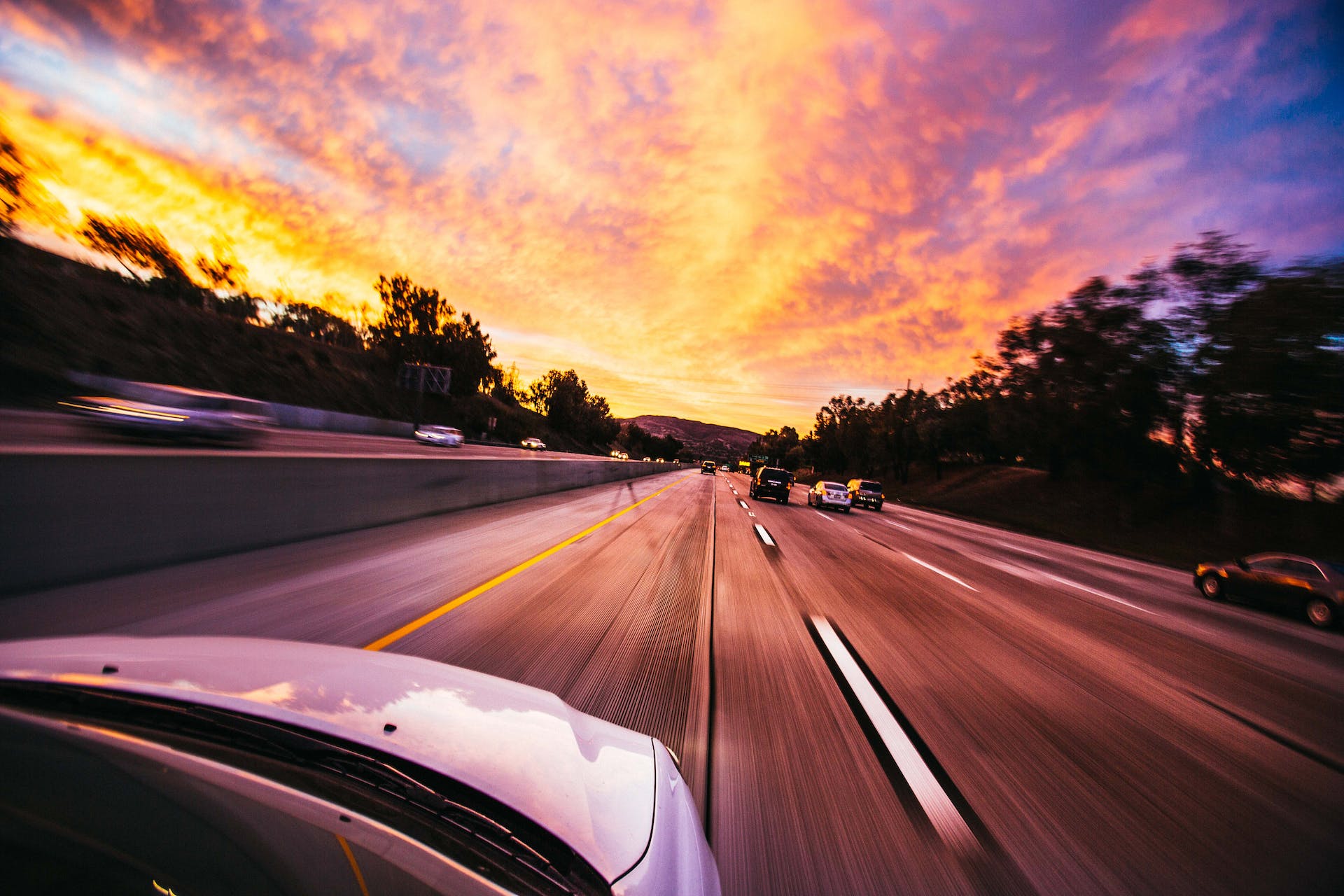
For tourists who decided to get a four-wheeled vehicle for their vacation, the Land of Smiles offers a variety of car brands and models for all tastes, needs and budgets. We will help you choose and tell you about the main car models available for rent in Thailand. All cars are manufactured in Thailand. The automobile industry of the country is well developed, every year existing car models are updated and new ones appear. In this article you will find answers to the basic questions related to car rental in Thailand, and common for all provinces:
Car rental in Phuket Car rental in Samui
Car brands and models available for rent in Thailand
Simple options as sedans and hatchbacks.
The entry level is represented by subcompact cars, sedans and hatchbacks of Toyota, Nissan, Honda, Mazda brands. The length of cars of this class does not exceed 4.5 meters, width is not more than 1.7 meters. Such cars are designed for comfortable movement of 4-5 people (including the driver). The rear row is designed for 2 passengers, but is often equipped with a seat belt for a third passenger in the middle. The luggage compartment and rear passenger row of sedans is more spacious than that of hatchbacks. If you have a lot of luggage, you plan to start renting at the airport and the back row of seats will be occupied by passengers, then we recommend making a choice in favor of sedans, their trunks are more adapted for luggage transportation.
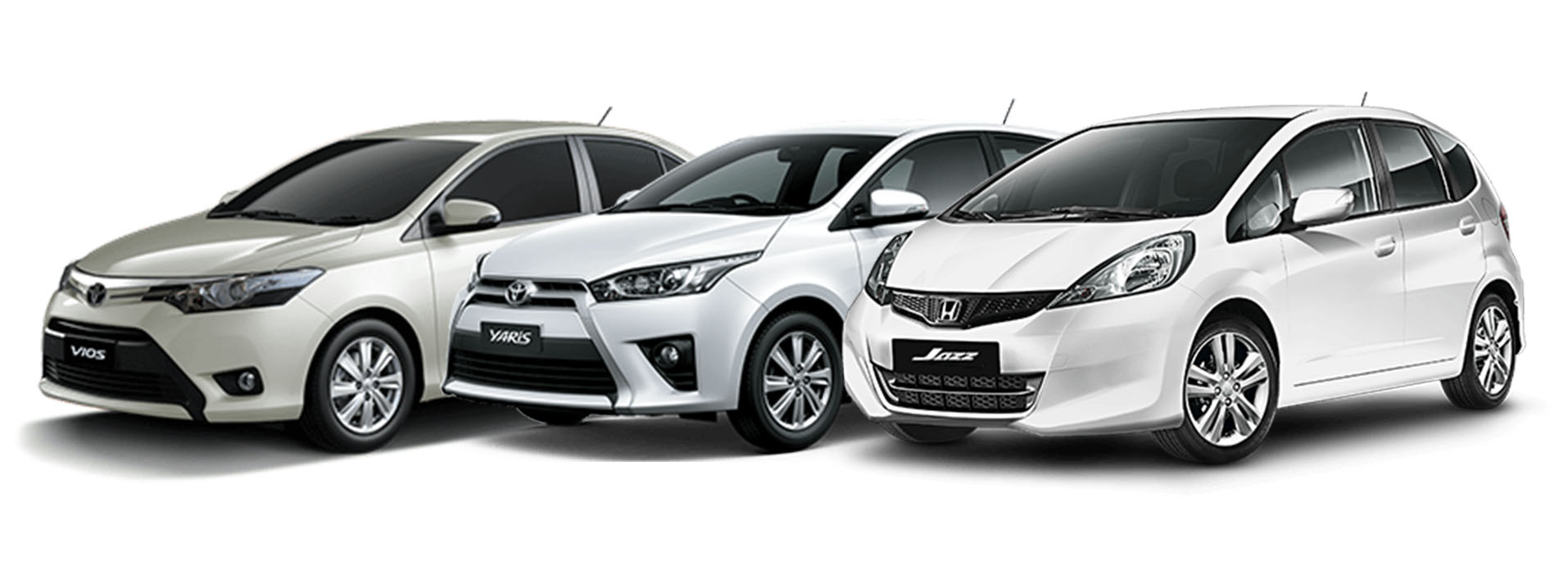
Hatchbacks are suitable if the luggage is already in the hotel and you need to transport only people. But that doesn't mean that hatchback trunks are impractical at all. Most will easily accommodate a baby stroller, a couple of beach chairs and other necessary on vacation inventory. The volume of engines installed on such cars does not exceed 1.5 liters. Hatchbacks, as a rule, are equipped with a 1.2 liter engine (but there are exceptions, for example, Honda Jazz), but this volume is quite enough for comfortable movement throughout the territory of Thailand.
Premium segment cars, business class
Premium segment cars will suit demanding and wealthy tourists. Capacity of saloons and trunks of these cars is more, but they are designed for four, maximum for five people, including the driver. The difference of these cars from the entry-level cars in dimensions, comfort of movement and driving, as well as in the number of car options, such as leather interior, park sensors and rear view cameras, audio systems with improved sound quality and interior with increased sound insulation.
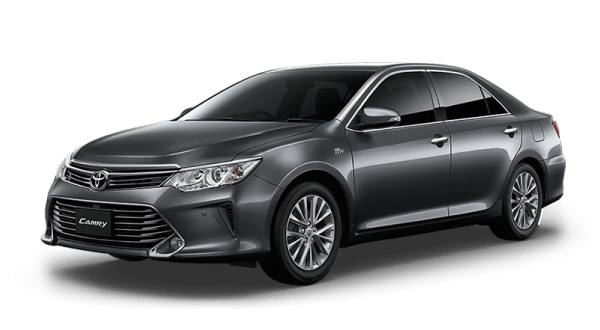
SUVs
SUVs can also be referred to the premium segment, as in most cases the equipment of an SUV does not differ from a premium or business class car. Most of them are equipped with a third row of seats, which allows you to transport up to 7 people, including the driver.
These cars are equipped with gasoline or diesel engines of up to 2.5 liters.
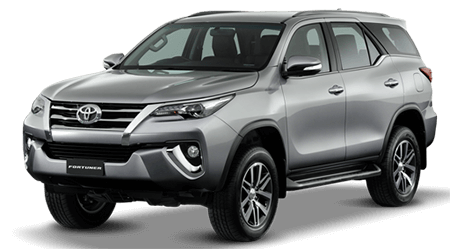
In most cases, cars used for rent in Thailand are equipped with automatic transmission. Some SUV models are equipped with differential lock, reduction gear and 4-wheel drive, but most of these vehicles are rear-wheel drive. Pay attention to this when making your selection.
Minivans (MPVs)
If you are going to Thailand with the purpose of traveling with the whole family or large company, or you have a lot of luggage, but you want to save money, it is recommended to pay attention to the class of minivans. These cars have a spacious interior and usually three rows of seats. Minivans are designed for 6 -7 people, including the driver, while leaving quite a lot of room for luggage. The rental cost will be an order of magnitude lower than premium cars and SUVs.
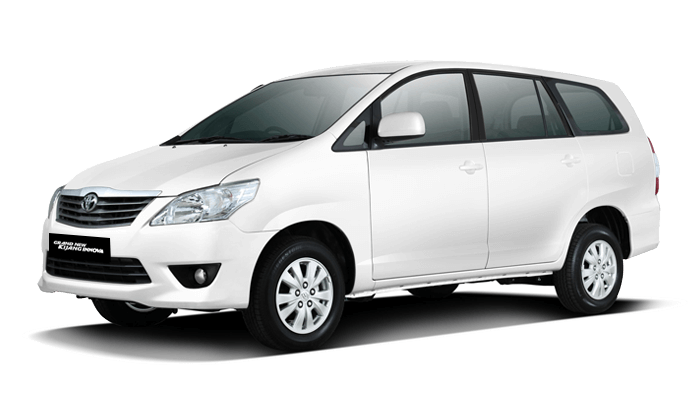
Minibuses
Thai laws do not allow tourists and foreigners in general to drive minibusses. You can rent such a car only with a Thai driver. The capacity of such a car depends on the layout of the salon and can reach 15 passengers. There are models of minibusses that can be driven by foreigners, but they are quite small, designed for 7-8 passengers and differ little in capacity from an SUV or minivan.
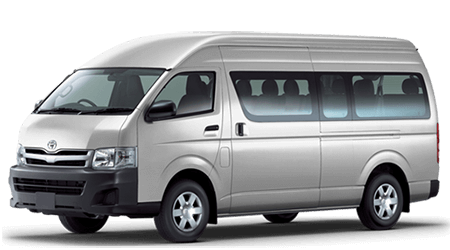
Booking a car online
The most convenient and modern way of booking is to book a car online. The advantages of early booking and vacation planning are obvious - you plan your budget and don't waste precious vacation time searching for a car at local rental offices. You can rent a car in Thailand on arrival, in one of the offices located at the airport, but the cost will be much higher, in addition, in the high tourist season you can find yourself without a car at all, as free simply will not remain.
The way out is obvious - book a car online in advance. It is very easy to do it: go to the main page of this site and fill out the form. Specify the dates, resort and delivery area, your email and phone number for communication and click "Send Request". After submitting the request, you will receive all the necessary data to track the booking process in a convenient personal account. You will be notified about all changes by email, if necessary, the manager will contact you and clarify the details.
Is it convenient, isn't it? Much more convenient than after an 8-hour flight to run around a crowded airport and try to book the remaining offers at an inflated cost.
Delivery
After you have submitted an order, specifying the desired place of pickup, you can specify the delivery address in more detail within the application itself in your personal account. This can be done on your own or with the manager during the booking process. For delivery you need the name of the place where you are staying. In Thailand, finding a place by address is very difficult, even for locals, so it is better if you tell the manager the name of the hotel or villa. Most hotels are in the booking systems and the manager will easily find the location. When delivering to a private house, villa or apartment also first of all be guided by the name of the complex, if there is no such, then send to the manager GPS coordinates, it can be done with the help of Google maps. When taking to the airport, tell the manager your full name and surname, as you will be met with a name paper at the exit from the airport, as well as the flight number to track the time of arrival. As a rule, parking directly in front of the exit is prohibited, so the staff of the rental company will park the car in the parking lot and meet you with a name paper at the agreed in advance place. Usually he waits at the meeting area near the exit from the airport.
Insurance
First class insurance is a must when you have to go for a car rental deal in Thailand. Any self-respecting company insures their cars as it is primarily in the interest of the company itself. You don't have to go into all the details of the insurance business to know that you are safe. It is enough to know that the car is insured. First class insurance is the most expensive and the best insurance with full coverage.
There are two types of first class insurance - commercial and for individuals. In terms of payouts and damage coverage, these insurances do not differ in any way. Do not be frightened if the car is insured not by commercial, but by private insurance, as the difference from commercial insurance is only in the fact that the owner of the car, specified in the policy, will have to come to the scene of the accident, in case of its occurrence. Companies that do commercial insurance in Thailand are quite few, if you limit yourself to the requirement to look for just such, you could miss out on a good deal.
You might be interested in this article Road traffic accident in Thailand when rent a car, what to do
Deposit
Once you have booked the car, usually at the place of signing the contract, you must pay a deposit - an amount of cash that will be held by the lessor to cover events not covered by the insurance (for example, a flat tire: its replacement will be your monetary responsibility). The amount of the deposit must be stated in every offer. If the deposit is not listed, it is not required.
So what is a deposit? Even if the car is insured to the maximum and the insurance has no deductible, business owners in Thailand additionally insure their risks and downtime of the car in case it cannot be used after an accident. This condition is always spelled out in the contract. This is standard practice and most companies, with few exceptions, use the deposit as a deductible. In case of an accident, the deposit may be deducted from the amount of the deposit or the whole amount depends on the rules of the company, but in any case, it is always at the discretion of the company. You treat the deposit as an amount that you can lose, or, simply put, as a deductible.
Initial inspection, signing the contract
So, you have booked the car, met the delivery person and started the checkout procedure. The first thing to do is to review the contract and find the scheme of the car, on which you need to indicate the damage on car body, if any. Take photos and video footage. If the diagram is not in the contract - no problem, take photos and video of all the damage at the time of delivery. Remember, damage you don't record will be your monetary responsibility. Also, carefully inspect the interior to see if everything works and if there are any broken items. Check for a spare tire and jack availability. Check for the vehicle tax receipt (blue sticker with the year on it). It must be placed on the windshield, within sight of police officers. The year on the sticker should not be less than the current year. Note that Thailand has a different calendar year (+543 to the standard year). Turn on the ignition, start the car, and there should be no fault lights on the dashboard. If any indicator is lit, but the car works properly - just fix this fact with a photo on your phone. Study all the clauses of the contract, if there is a question, ask for clarification from the manager. As a rule, delivery is carried out by Thai citizens, they speak Thai and English. The contract is drawn up in English, if you have questions on some points of the contract, call the manager and ask for clarification. All amounts, including the deposit, must be specified in the contract, in the currency in which you make them. Accordingly, the return of the deposit will be in the same currency.
Booking a car from private persons
Be careful when booking a car for rent from private individuals. As a rule, such offers are placed in social networks and forums. It is worth carefully studying the account of the person who offers you a car for rent. Unlike companies that value their reputation, private individuals do not risk anything. Often accounts are fake and use other people's photos. With special attention should be treated with special attention to offers with a severely underestimated value. It is not uncommon when in the case of early booking after making a prepayment, the client does not receive the car at all, and the person who surrendered and accepted the prepayment does not get in touch or deletes the account altogether. Unfortunately, this type of fraud is not rare. If you decide to rent a car from a private person, carefully study all documents during the registration, ask for a copy of documents (blue book), so that you do not get a car already rented from another company, or a car stolen. Be sure to check the availability of insurance, it is desirable to have a Thai friend, as all documents are in Thai. If you do not want to face possible problems of this kind - do not take risks, contact the company. The longer the company has been on the market, the less likely it is that you will be deceived, or the service will not be of proper quality.
Support during rental
Unfortunately, no one is immune to various unforeseen situations in which you may need help. That's why we recommend renting a car from companies that provide roadside support, and preferably the support should be in English language. Whether it's legal aspects of resolving conflict situations or technical assistance on the road, a good company is always ready for such cases and will always be on call. Write down all the contacts of the company in advance in order to be able to contact the manager at any time. Be ready to send your location so that you can be found.
Book your car in advance
More and more tourists arrive in Thailand every year during the high season, and although companies try to cover the demand, the number of offers is limited. If you want to get the best deal on a car rental in Thailand, the earlier you take care of it, the better your chances will be. Especially when it comes to booking for high and peak season dates (November - April, New Year and Christmas). For example, all the most favorable offers for the New Year can be obtained starting from September, and the closer the date of booking directly to the high season, the cost is higher and the remaining offers are fewer.
Many years of experience shows that it is almost impossible to book a car for winter holidays directly a day or two in advance, and the price tag on offers skyrocket.
Driving rented car on the roads of Thailand
By the way, the roads in Thailand are wonderful, especially in popular tourist regions - Phuket, Pataya, Bangkok. Wide highways, clear markings, smooth regularly maintained asphalt pavement. Traveling around the country is a pleasure. Don't forget that traffic is on the left.
Gas station
There are gas stations everywhere, but there are some areas where there are few gas stations, so we recommend looking up their location on Google maps in advance. They look the same as in other countries. To refuel your car, you don't need to get out of it. You drive up to the desired column, hand your money to the gas station attendant through the window, he immediately calculates your change and refills your car. Most gasoline cars such as Toyota Vios, Toyota Yaris, Honda Jazz, Honda City, equipped with a 1.2 - 1.5 liter gasoline engine are fueled with 91 or e20 grade gasoline. If you want to get more power, you can fill the car with 95 grade gasoline. Before refueling, open the hatch of the gas tank, on its inner surface is sometimes indicated the recommended brand of fuel. Sometimes this information is on a sticker by the driver's door lock.
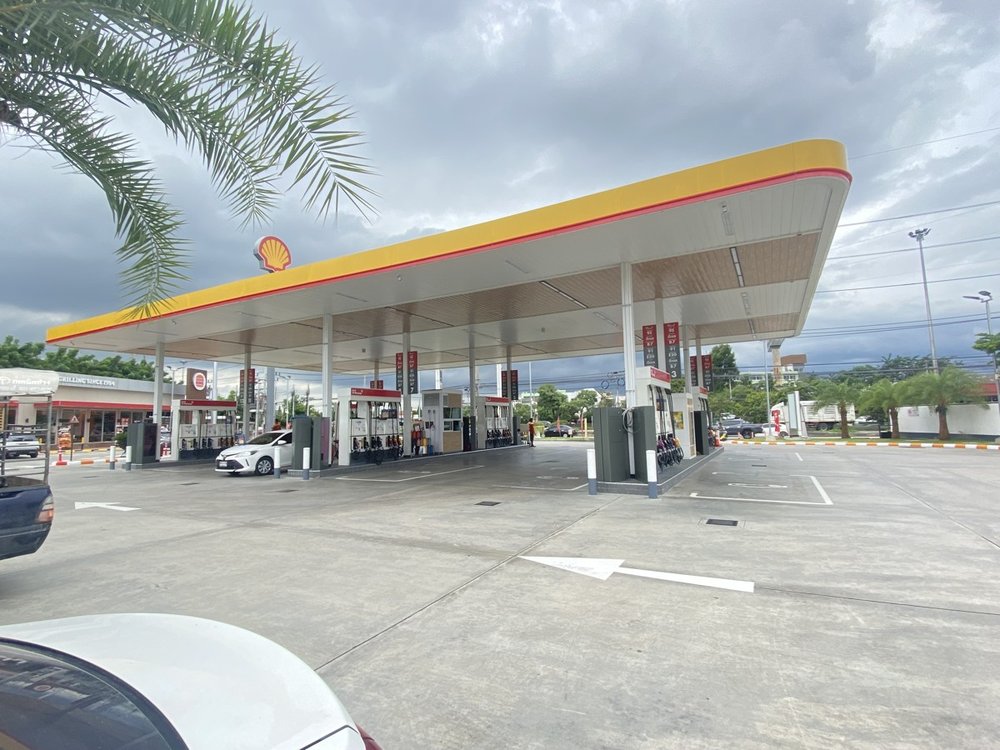
Parking
The most important parking rule is not to park at colored curbs, red or yellow. There is a risk that your wheels will be blocked and you will have to go to the police station, which can be quite far away, to pay a fine. Always make sure there are no prohibiting signs in your parking spot. Also be careful when parking in private parking areas and cab drivers' parking lots, as they can cause conflict or damage to your car, such as a flat tire.
Tires
In Thailand tire pressure in tires is indicated in PSI, for inflation can be used compressors installed at gas stations, you can use them for free. The standard pressure is 32 Psi or approximately 2.2 atmospheres. The recommended tire pressure can be found on a sticker that can be found on the body when you open the driver's door.
If you get a flat tire, use the spare tire or the many tire services, which are abundant on Thailand's roads. In case of any difficulties, please contact the manager of the car rental company.
Service
Normal routine maintenance is carried out by the rental company and you do not need to worry about engine or suspension maintenance. In case of malfunction, contact a representative of the company, give details of the malfunction, and be ready to indicate the location on the map. In case you leave the territory of the service area, you will have to find a service center and fix by yourself, in most cases the company will reimburse you for all expenses if the repair was necessary, so be sure to keep the receipt. For this purpose, carry out maintenance in more or less large services. Before carrying out repairs, agree with the manager on the phone to be sure that the repair costs will be reimbursed.
GPS navigation
Take care of navigation in advance, even locals sometimes find it difficult to find things in the confusing streets of some resort areas. We recommend buying a local SIM card with a 4G/5G internet package and installing Google maps.
Basic rules of the road
Thailand is left-hand drive, cars are right-hand drive, and the "Right Hand Rule" applies. That is, you pass everyone on the right. But, given the peculiarities of traffic in Thailand, it is recommended to let everyone pass, especially if you have little driving experience in an unfamiliar country.
Pass unregulated intersections, being one hundred percent sure that other cars have stopped and let you pass.
At a traffic circle, the person who is already in the circle has the advantage. Most signs will look familiar to you and won't raise questions.
Solid lines painted in yellow can be crossed for overtaking and turning after making sure the maneuver is safe.
You should only park in areas with curbs that are not painted red or yellow.
Drunk driving is prohibited, but there is still a minimum allowable limit of 0.5 ppm.
Penalties
Parking in the wrong place - 500 baht
Lack of international license - 1000 baht
Drunk driving - from 5000 baht
Overdue transportation tax ticket - 500 baht
We hope we have answered all the main questions that may arise in a tourist who decided to rent a car in Thailand.